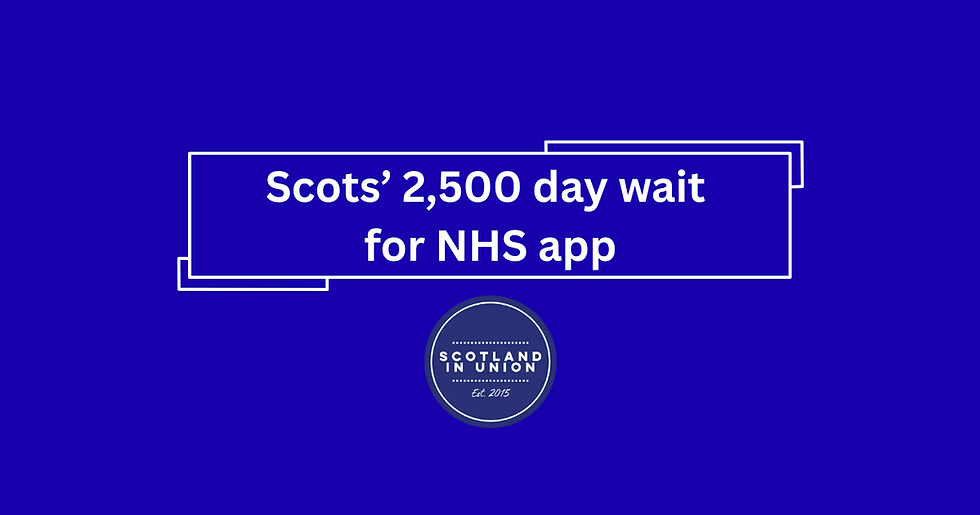Sorry seems to be the hardest word - what Nicola Sturgeon should have said in response to GERS
- Scotland in Union

- Aug 23, 2018
- 3 min read
Updated: Jan 29, 2024
“I make no apology for believing in Scotland and its potential. I have always believed that we could thrive as an independent country, just like other nations do, large and small.
And there is plenty in today’s GERS figures which back up this view:
- We have reached the £60 billion figure in revenue, boosted by a welcome rise in our onshore tax take
- Our North Sea industry has been boosted by the surge in oil prices
- And our notional deficit has been reduced once again
I have been critical of the UK Government on a number of fronts but two of their policies I believe are seriously damaging to both Scotland and the UK. Austerity and Brexit have and will cause hardship to Scottish families.
Yet there is no denying the deficit reduction programme pursued by the UK Government has contributed to Scotland’s improved balance sheet. And so far, Scottish businesses have shown surprising resilience in the face of Brexit and the uncertainty has not damaged the Scottish economy as much as I feared.
But I stand by my stance on both policies. There is a better way than the cuts - investing in our economy would allow us to grow our way out of the deficit. And Brexit hasn’t happened yet. The consequences of leaving the European Union - particularly without a deal - could still wreak havoc with our economy. I urge the UK Government to think again on both fronts.
I also reject the suggestion we should be somehow grateful to the rest of the UK. There have been many years when Scotland has paid in more than it gets out. And let’s not forget we are one of the wealthiest parts of the UK. We know that London and the south east of England distort the even, balanced growth we should be aiming for. Regional inequality is a policy challenge for the UK Government rather than a black mark against Scotland.
Yet the GERS figures demonstrate the challenges we would face on day one of an independent Scotland. I firmly believe these figures represent the mismanagement of the UK rather than any underlying weakness in the way Scotland is run.
But we are where we are. We can cannot count on the North Sea to make up the shortfall in revenues. And that means becoming an independent country at this time would be difficult.
The White Paper we put forward in 2014 was based on the best information we had at the time, underpinned by the ambition and positivity for Scotland’s future which is sorely lacking from our opponents.
But a number of factors have changed in the years since. Delivering that prospectus would have been tough in these new circumstances, which is why we are now debating a different approach. The Sustainable Growth Commission has given us a promising starting point for this discussion.
So, I am sorry to any of my fellow Scots who feel they were misled in 2014. And I am sorry to independence supporters who are impatient for a second referendum.
The truth is, this is not the time to be rushing ahead. Not while Brexit and its consequences are so uncertain. And not with the Scottish public finances still unbalanced.
Against that background, I have decided to withdraw my request for a section 30. We will not be holding a referendum on Scottish independence this side of the Scottish Parliament elections in 2021. Instead our focus will be threefold:
- Stopping or at least softening the impact of our departure from the European Union
- Implementing the recommendations of the Growth Commission which are possible under the devolved settlement
- Deliver on our ambitious plans to close the educational attainment gap
I know this will disappoint many people. I have never been more sure of Scotland’s destiny, but now is not the time for another independence referendum."









Comments